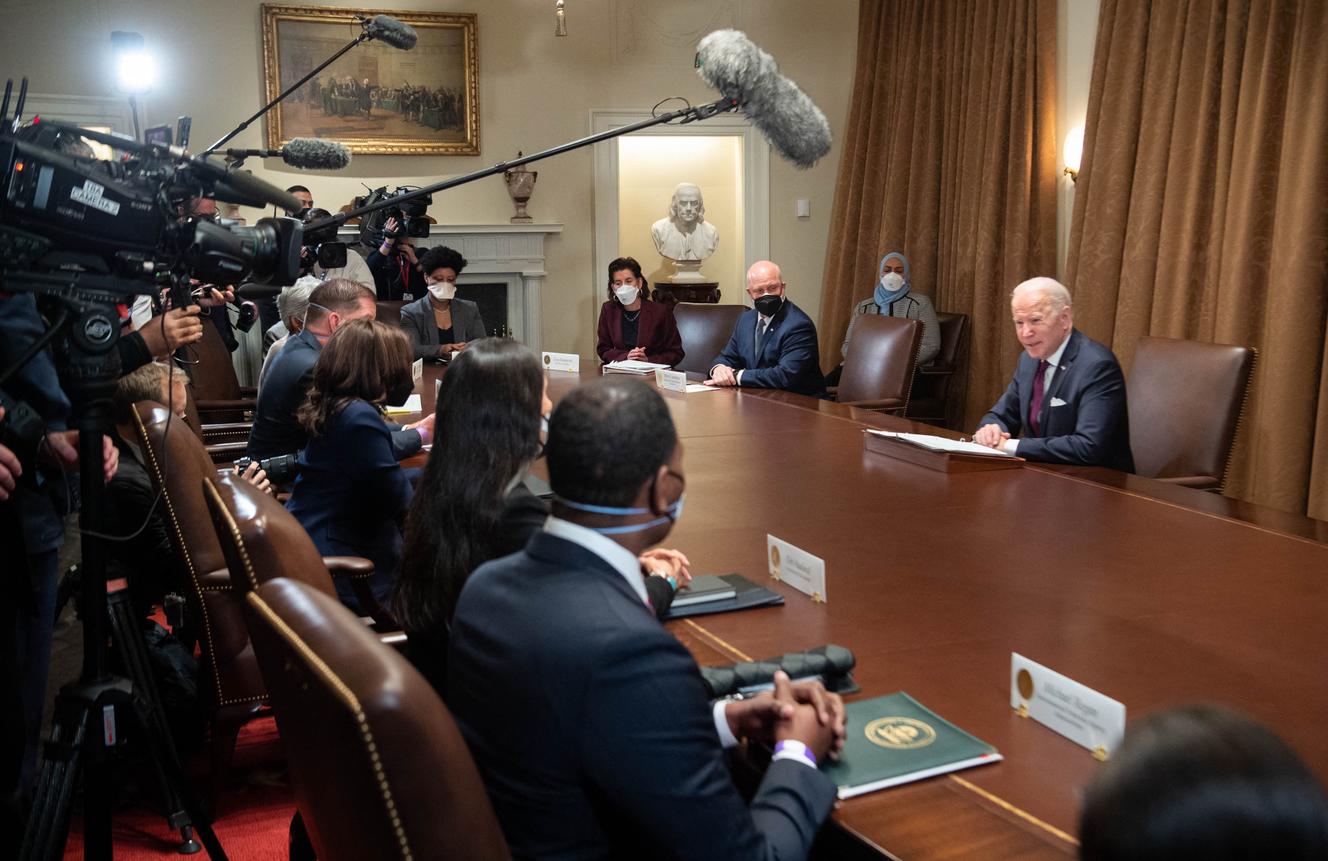
Containing the fire that we ourselves started is a challenge. The Biden administration made every effort on Thursday, January 20, to clarify the remarks made the day before by the American president, during his press conference, about the Russian threat against Ukraine.
During this long and not very invigorating intervention, Joe Biden was asked several times about the international crisis of the moment. Balancing between approximations, useless confessions and contradictory threats, the leader has aroused confusion and nervousness in Kiev and in European capitals. On the merits, the American line remains unchanged, while Secretary of State Antony Blinken prepares to meet his Russian counterpart Sergei Lavrov in Geneva (Switzerland) on Friday. But the constant concern, for two months, of a western common front against Vladimir Putin is tarnished.
Asked about the intentions of the master of the Kremlin, Joe Biden answered like an expert or a commentator, instead of sticking to the red lines enacted by his administration. “I think he will come in. He must do something. » Confusion set in after another remark: “It depends on what he’s doing. It’s one thing if it’s a minor incursion…” From what degree would Russian aggression be acceptable? Ukrainian President Volodymyr Zelensky has reacted quickly on Twitter, in English. “We want to remind the great powers that there are no such thing as minor incursions and small nations. »
In the evening, at the end of the press conference, White House spokeswoman Jen Psaki had to issue a statement to reformat the official position, emphasizing the distinction between cyber attack, paramilitary-type attack and classic military invasion. . Joe Biden himself on Thursday tried to clear up the trouble. “If any group of Russian units crosses the border of Ukraine, it is an invasion. »
Joe Biden appeared to give Moscow a public pledge
During his press conference, the American president predicted a “disaster” for Russia, if she chose the military adventure. He even mentioned the fact that “their banks will no longer be able to trade in dollars”, without going into details. An explosive prospect, which would have, he admits, a ” negative impact “ for both the United States and European economies. This is why the financial sanctions envisaged in Washington, such as the disconnection of Russia from the Swift information system, are absolutely not unanimous within the European Union (EU).
You have 58.3% of this article left to read. The following is for subscribers only.






